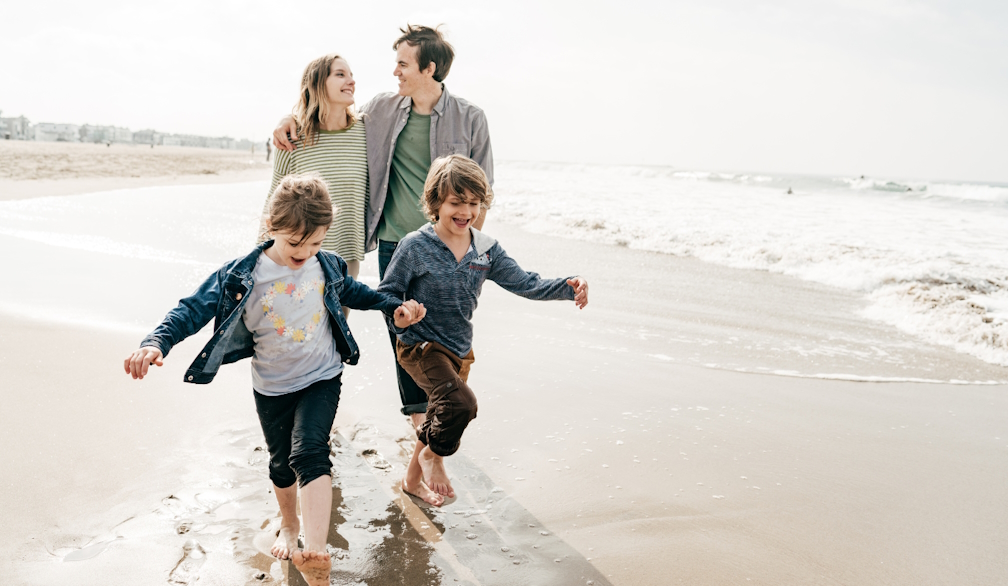Switching off from work can be difficult but taking a proper break is good for your health
- Written by Ty Ferguson, Research associate in exercise, nutrition and activity, University of South Australia

It’s never been easier to stay connected to work. Even when we’re on leave, our phones and laptops keep us tethered. Many of us promise ourselves we won’t check emails during our break. But we do.
Being away from the workplace, and even in a new location, is often not enough to detach psychologically[1]. We might still be thinking about a demanding project we raced to finish or even feel guilty about leaving others to cover for us.
‘Digital presenteeism’
It mightn’t be spelt out by our employers but having phones and laptops can create an underlying expectation we are constantly available, even outside the usual work hours.
This feeling of connection or “digital presenteeism[2]”, can impact our health by making us stressed, anxious and burnt out.
Switching off our work tools[3] when we are out of the office or on leave can remove these problems as well as helping improve and enjoy our non-work activities and relationships.
Right to disconnect
While recently passed right to disconnect[4] laws in Australia legally support workers to switch off, there’s another option already available to workers. Taking annual leave.
Unfortunately, many workers don’t take advantage of this valuable resource, with an estimated 160 million annual leave days[5] banked up by Australian workers. One in five have more than the typical yearly allocation of four weeks unused.
The benefits of taking a break
Taking a break doesn’t just feel good, it’s been shown to benefit your health.
A 2017 meta-analysis[6] of 86 studies revealed taking holidays can lead to reduced stress and less exhaustion during the holiday period.
So what do we do with all the extra time we have? Sleep more? Do more exercise? Studies show that’s exactly what happens when we are on holiday. We studied[8] movement patterns of 375 adults during annual leave. We found people were more physically active, less sedentary and had more sleep each day – all of which are good for our health.
Holidays can also be associated with changes in how our body functions. A study of 112 holiday makers[9] who attended a wellness resort for six days in the United States had increased heart rate variability which indicates greater resilience to stress.
Also, the odds of meeting metabolic syndrome criteria[10] decreased with each break taken each year in a cohort of workers who took on average five holidays[11] each year.
If you’re male and still not convinced, there is evidence that taking holidays is linked with living longer. Men who take more frequent holidays[12] and more leave days a year[13] have lower mortality rates than those who don’t?
The best type of break?
Simply taking leave[14] is beneficial. Longer breaks do not have increased benefits and where you go is also unimportant.
A study of locations[15] found those who took a short four day break in a hotel did not benefit more than those who took a break at home. Both groups showed positive changes to stress, recovery, strain and wellbeing.
In our study[16], the largest favourable changes were experienced by people who took one to two weeks’ leave or those who spent time outdoors camping or hiking. However positive changes were observed for all types of holidays.
Ultimately, the best vacation is the one that fits your preferences and budget – there’s no such thing as a perfect holiday.
How to make the most of your next break
If you haven’t already, book some time off and get away from the workplace. Here are five ways to make the most of the time:
1. Finish up your to-do list and clear out your inbox: returning to work after a summer holiday with fewer unfinished tasks allows the positive effects of the holiday to linger longer[18].
2. Step away from the normal routine: try to limit work-like activities (such as shopping, cleaning, computer-based tasks) and find environments that feel removed from your typical routine and obligations[19].
3. Engage in “soft fascination[20]” activities: exploring nature is an example of an activity that gently holds your attention while leaving headspace for reflection. These types of activites have been shown to provide restorative mental benefits[21].
4. Reduce the friction and chaos: avoid putting yourself in settings of conflict (such as visiting a difficult family member), confusion (busy, unfamiliar environments) or tension (excessive travel and/or tight timelines).
5. Take more frequent breaks: aim for multiple short breaks throughout the year, rather than a single longer vacation. This spreads out the benefit[22] with more lead-in time and longer comedown.
The research is clear: vacations are essential for our health and wellbeing. So, if you haven’t already, book some time off and get away from the workplace.
References
- ^ detach psychologically (www.frontiersin.org)
- ^ digital presenteeism (www.mdpi.com)
- ^ Switching off our work tools (www.frontiersin.org)
- ^ right to disconnect (chrome-extension)
- ^ 160 million annual leave days (theconversation.com)
- ^ A 2017 meta-analysis (www.frontiersin.org)
- ^ Gladskikh Tatiana/Shutterstock (www.shutterstock.com)
- ^ studied (link.springer.com)
- ^ study of 112 holiday makers (www.frontiersin.org)
- ^ metabolic syndrome criteria (www.hopkinsmedicine.org)
- ^ cohort of workers who took on average five holidays (www.tandfonline.com)
- ^ take more frequent holidays (journals.lww.com)
- ^ more leave days a year (www.sciencedirect.com)
- ^ Simply taking leave (oce.ovid.com)
- ^ A study of locations (www.mdpi.com)
- ^ In our study (link.springer.com)
- ^ Dimitry Molchanov/Shutterstock (www.shutterstock.com)
- ^ positive effects of the holiday to linger longer (www.tandfonline.com)
- ^ typical routine and obligations (www.sciencedirect.com)
- ^ soft fascination (www.thewillows.org)
- ^ have been shown to provide restorative mental benefits (journals.sagepub.com)
- ^ spreads out the benefit (psycnet.apa.org)
















